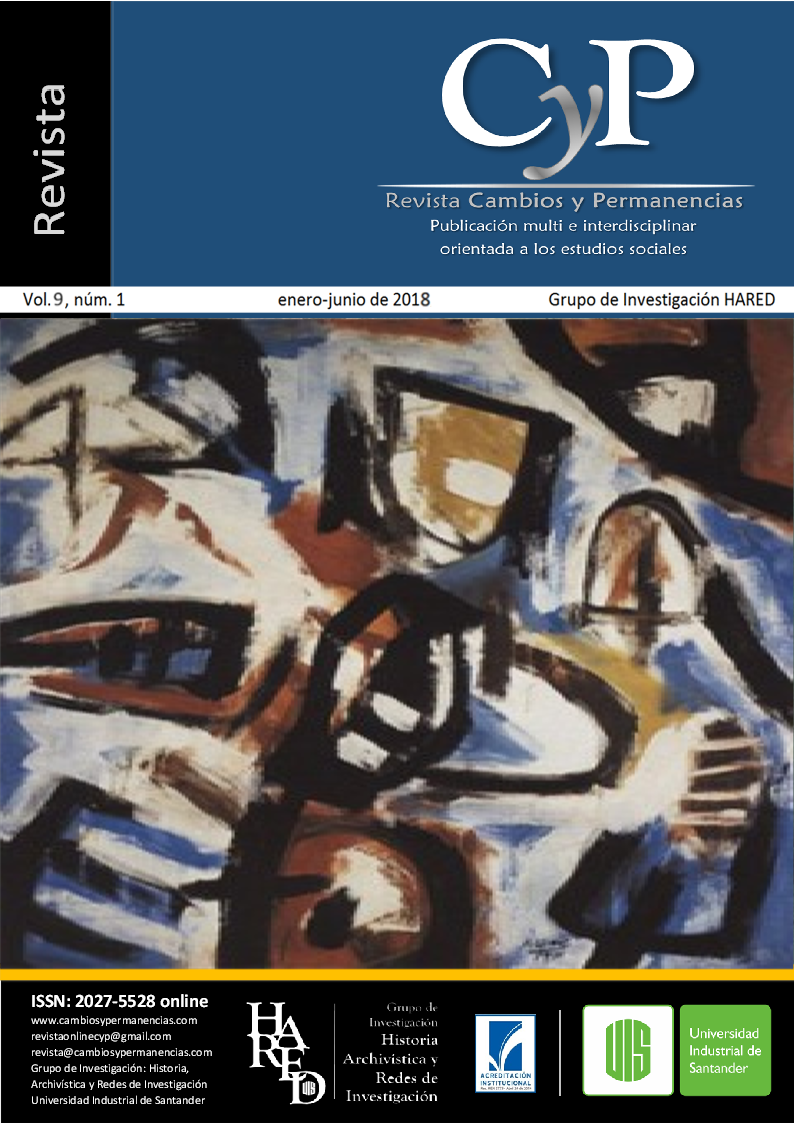"The adventurous sailor and the merchant sailor" Mentalities of the men of the sea in the 16th and 17th centuries
Published 2018-06-01
Keywords
- Atlantic,
- sailors,
- experience
How to Cite
Abstract
At the beginning of the Modern Age, in a long-term process were the past logics were broken and the creation of new significances, Europe started looking at the “Atlantic Sea”. As Europe expended through the sea, it not only formed new trade routes, but also a new space, with new cultural logics of its own and built by diverse people who merged their experiences shaping a new more or less homogeneous mentality. These subjects saw themselves, along the XVI and XVII Centuries, as sailors. In this article, we will analyze these sailors’ experiences in the Atlantic Ocean and we will see which were the ruptures and continuances in the mentality of the sailors in those two hundred years.
Downloads
References
Burke, P. (2005). Visto y no visto: el uso de la imágen como documento histórico. Barcelona: Crítica.
Elliot, J. H. (1972). La España Imperial: 1469-1716, Barcelona: Vicens-Vives.
Fernández-Armesto, F. (2001). Civilizations: culture, ambition, and the transformation of nature. Simon and Schuster.
González Lonzieme, E. (1978). “El buque de vela entre los siglos XV y XX”. En Introducción a la Historia Marítima (pp. 145-166). Buenos Aires: Fundación de Estudios Marítimos.
Gruzinski, S. (2016). Las cuatro partes del mundo: Historia de una mundialización. México: Fondo de Cultura Económica.
Linebaugh, P. y Rediker, M. (2005), La hidra de la revolución: Marineros, esclavos y campesinos en la historia oculta del Atlántico. Barcelona: Crítica.
Parry, J. H. (1989). El descubrimiento del mar. Barcelona: Crítica.
Parry, J. H. (1989). El descubrimiento del mar. Barcelona: Crítica
.
Portuondo, M. M. (2009). Secret science: Spanish cosmography and the new world. Chicago: University of Chicago Press.
Pratt, M. L. (2011), Ojos Imperiales: literatura de viajes y transculturación. Buenos Aires: Fondo de Cultura Económica.
Regules, J. A. (1930) Apuntes para la historia de la cartografía en el Uruguay. Montevideo: Impr. Militar.
Sánchez, C. A. (2014). Abismos de la memoria: escritura y descubrimientos oceánicos. Una aproximación metodológica. História Unisinos, 18(2).
Soler, I. (2003). El nudo y la esfera: el navegante como artífice del mundo moderno. Barcelona: El Acantilado
Troulliot, M-R. (1995) Una historia impensable. La revolución haitiana como un no-acontecimiento. Boston: Silencing the Past. Power and the Production of History, Boston: Beacon Press.
Vicente Maroto, I; Piñeiro, E. (Coord.) (2006). La ciencia y el mar. Valladolid: Instituto Universitario de Historia.
Fuentes
Alberti, L. B. I (1986). Libri della famiglia. Barcelona: Ariel.
Colón, C. (1968). Diario de Colón. Madrid: Cultura Hispánica.
López De Soto, P. y Vicente Maroto, M. I. (1998). Diálogo entre un vizcayno y un montañés sobre la fábrica de navíos. Salamanca: Ed. Universidad de Salamanca.
Mena, J. (1996). Laberinto de Fortuna. Madrid: Cátedra.
Shakespeare, W. (2006). La Tempestad. La Fierecilla Domada. La Plata: Terramar.


